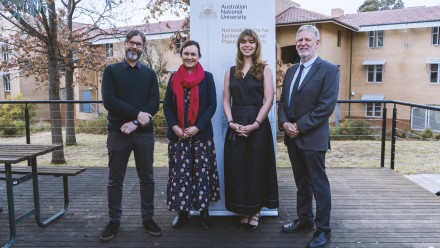About
Since the 1980s, work has become increasingly precarious threatening workers’ financial security and wellbeing, particularly for those from socially and economically disadvantaged backgrounds. Research also shows that parents’ precarious work time and timing harm children’s health and development.
Jianghong Li will talk about their experience working in the WZB on this growing body of research, with a focus on three aspects:
-
Why and how (theoretical frameworks) parent employment matters to child health and development
-
The state of the knowledge in this field
-
Future directions for research and policy
Bio
Jianghong Li, Ph.D., is a senior researcher at the WZB Social Science Center Berlin, Germany. She is an Adjunct Associate Professor at Curtin University and a Honorary Research Associate Telethon KIDS Institute, The University of Western Australia in Western Australia. Her research interests revolve around social, economic, psychological, cultural determinants of child health and development. Her current research focuses on the impact of parental employment status, work hours, and work schedules on children’s health and development in diverse national contexts (Australia, China, Germany, the UK, and the US).
WZB
At the WZB Berlin Social Science Center, researchers conduct basic research focusing on major developments in a globalizing world and their economic, political, and social impact on individuals and the environment they live in. WZB researchers analyze democratic and non-democratic societies alike, their respective complexities and develop evidence-based innovative solutions for their specific challenges.
The research is theory-based, problem-oriented, often long-term, and mostly based on international comparisons. Researchers collaborate across seven research areas within the WZB in order to enhance interdisciplinary research.
Around 200 scientists from various disciplines work together at the WZB, mainly from sociology, political science, economics, and law. The main research areas include dynamics of social inequalities, markets and choice, society and economic dynamics, international politics and law, dynamics of political systems, migration and diversity, and political economy of development.
The WZB Berlin Social Science Center is committed to science communication, knowledge transfer, and societal engagement. The research findings are published for the scientific community as well as policy makers, business leaders, the media, and civic organizations.








